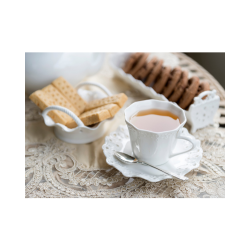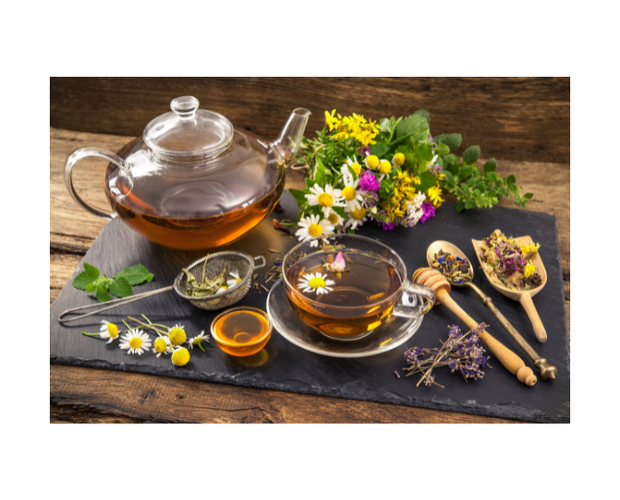Teas: Popular Times to Drink Tea and Their Health Benefits
Feb 19th 2024
Tea is a humble word with a diverse heritage and profound cultural significance.
People around the world have developed a strong fondness for tea, a humble yet beloved drink.

A reveal of the top 10 most popular teas worldwide.
Tea lovers who are passionate about the variety of flavors and ancient customs associated with tea have always been fascinated by the diverse world of teas. A well-known tea expert, who has many years of experience in tea culture, reveals the top 10 most commonly consumed teas around the world. These teas have captured the hearts of tea enthusiasts everywhere, each offering unique traits and a rich historical background.

| Rank | Tea | Origin | Description |
| 1 | Green Tea | China | Celebrated for its fresh and grassy taste, green tea is rich in antioxidants and is prized for its numerous health benefits. |
| 2 | Black Tea | India/Sri Lanka | Known for its robust flavor and boldness, black tea is commonly enjoyed with or without milk and sugar, making it a versatile choice. |
| 3 | Oolong Tea | Taiwan/China | With a perfect balance between green and black teas, oolong tea boasts complex flavors and aromas, often likened to floral or fruity notes. |
| 4 | White Tea | China | Delicate and subtle, white tea is revered for its light, yet sophisticated taste, making it a favorite among those seeking a gentle tea experience. |
| 5 | Herbal Tea | Worldwide | Herbal teas encompass a wide array of blends, each offering unique health benefits and flavors, from soothing chamomile to invigorating peppermint. |
| 6 | Chai Tea | India | A spicy and aromatic blend of black tea and warm spices like cardamom, cinnamon, and ginger, chai tea is a comforting choice enjoyed with milk and sweeteners. |
| 7 | Matcha Tea | Japan | Highly prized for its vibrant green color and earthy taste, matcha tea is a powdered form of green tea that is often used in traditional tea ceremonies. |
| 8 | Pu-erh Tea | China | A fermented tea with a distinctive earthy flavor, pu-erh tea is aged to develop complex flavors, making it a sought-after choice for tea connoisseurs. |
| 9 | Jasmine Tea | China | Jasmine-scented green or white tea is celebrated for its delicate floral aroma and soothing qualities, embodying elegance in every sip. |
| 10 | Earl Grey Tea | Worldwide | Infused with bergamot oil, Earl Grey tea offers a citrusy twist to traditional black tea, creating a sophisticated and refreshing blend cherished by tea enthusiasts globally. |
Is there someone in your household who is passionate about tea?
Tea is more than just a beverage enjoyed by billions of people around the world – it is a cultural phenomenon that transcends boundaries. With 80% of the global population appreciating its various flavors and health benefits, tea has become a cherished drink in different cultures and regions. Whether it is the traditional tea ceremonies in Asia or the casual tea breaks in the Western world, tea has the power to bring people together regardless of their background. Its popularity knows no limits, uniting individuals in a pleasant and comforting experience with each cup.
In the magical realm of herbal teas, the timing is essential to fully enjoy the many health benefits they provide. I will guide you on the best times to enjoy a cup of tea and recommend specific herbal teas for various health needs.
Popular Times to Drink Tea:

Start your morning by enjoying the peace and quiet with a refreshing cup of black tea mixed with milk and sugar. For other folks herbal tea, is their drink of choice. Some others may opt for chai tea, green tea with lemon, or other varieties of tea to kick-start their day.
In the
afternoon, beat the tired feeling of midday by drinking some herbal tea to
rejuvenate your mind and body. Choose a revitalizing blend that will help keep
you awake and concentrated.
Green tea is a popular choice for a mild energy boost, packed with antioxidants
and less caffeine than black tea. Peppermint tea is refreshing and
revitalizing, known for aiding digestion and giving a subtle energy boost.
Ginger tea offers a spicy and warming kick to keep you alert without the crash.
Rooibos tea, a caffeine-free herbal option, is also a great choice with a rich
flavor and numerous health benefits. Savor a cup of any of these teas to stay
refreshed and focused all afternoon.
End the day on a calming note by enjoying a soothing cup of herbal tea in the evening. Selecting a blend that promotes relaxation can help improve sleep quality and overall well-being. Choosing the right tea before bedtime is key to unwinding and preparing for rest. Some top choices for nighttime tea include chamomile, valerian root, and passionflower. Chamomile is famous for its calming effects, valerian root aids in sleep promotion, and relaxation, and passionflower helps reduce anxiety and enhance sleep quality. By sipping on these herbal teas before bed, you can create a tranquil end to the day and promote a restful night's sleep.
Best Herbal Teas for Various Health Concerns:
| Health Concern | Recommended Herbal Tea |
| Digestion | Peppermint Tea, Ginger Tea |
| Insomnia | Chamomile Tea, Lavender Tea |
| Diabetes | Cinnamon Tea, Green Tea |
| Inflammation | Turmeric Tea, Echinacea Tea |
| Eye Sight | Bilberry Tea, Rooibos Tea |
| Hair Growth | Horsetail Tea, Nettle Tea |
Embrace the ancient wisdom of herbal teas to nurture your body and soul. Incorporating these delightful brews into your daily routine can unlock a treasure trove of health benefits, promoting holistic well-being. May each sip transport you to a realm of tranquility and vitality.
Sip, savor, and delight in the magic of herbal teas – nature's gift to revitalize, heal, and soothe.
Folklore and History of Tea
Why Did People Start to Drink Tea?
Originally, individuals consumed tea for its healing qualities, like its power to increase energy and enhance mental sharpness. As time passed, tea became a representation of one's societal standing and customs in different cultures. Additionally, the calming and comforting results of tea played a role in its popularity, leading to it becoming a regular part of many people's daily schedules.

Four Interesting Facts About Tea
The first documented evidence of growing tea can be traced back to the Han Dynasty in China from 206 BCE to 220 CE, when it was mainly utilized for its medicinal properties.
There are more than 1,500 diverse types of tea available, such as black, green, white, oolong, and herbal teas, each offering distinctive tastes and potential health advantages.
In Japan, the cherished traditional tea ceremony, also called "chanoyu" or "sado," is a highly respected ritual that focuses on promoting harmony, respect, cleanliness, and peace.
Tea was a major player in global trade, shaping important events like the Opium Wars and the Boston Tea Party.
The tradition of having tea at 11am is observed in some cultures as a mid-morning break. The term "elevensies" or "elevenzies" is a playful way to refer to this break time, similar to how "teatime" is associated with the afternoon tea tradition. It's a casual way to enjoy a cup of tea and a snack to help keep energy levels up during the mid-morning hours.
Tea remains a popular drink worldwide, loved for its various flavors, health advantages, and cultural importance. Whether enjoyed in a busy city or a peaceful tea garden, the act of drinking tea represents hospitality, grace, and camaraderie. Originating in ancient China and continuing to be enjoyed today, tea is a valued tradition that brings people together in admiration of its beauty and depth.
Tea True Facts
1.Tea bags were accidentally created as a marketing mistake when American merchant Thomas Sullivan sent loose tea samples in silk pouches to customers in 1908. Customers mistakenly used the entire pouch to brew tea, inspiring the invention of the tea bags we know today.
2.The American Revolution was ignited by tea smuggling. In the 1700s, the British government enforced high taxes on tea, causing widespread smuggling in the American colonies. The well-known event of the Boston Tea Party in 1773, where colonists threw tea into the harbor, was a demonstration against the British tea tax and was a key factor in starting the American Revolution.
3.Contrary to popular belief, tea leaves actually have a higher caffeine content than coffee beans, but the brewing process results in a cup of coffee usually containing more caffeine than a cup of tea. This goes against the notion that coffee is the more energizing drink.

Indulge in the refreshing taste of tea anytime.
For those who are not enthusiastic about tea, there are many good reasons to consider starting to drink it for its numerous health benefits. By making tea a part of your daily routine, you can not only enjoy a comforting drink but also give your body a natural dose of health and energy. Whether you choose to start your day with a cup of green tea or wind down with chamomile tea before bed, the benefits of tea are endless. Tea is known for its antioxidants, which can strengthen the immune system and lower the risk of chronic illnesses. Different types of tea, like green or herbal teas, can also improve digestion, promote relaxation, and help with weight management. Drinking tea not only allows you to enjoy delicious flavors but also supports your overall well-being.


